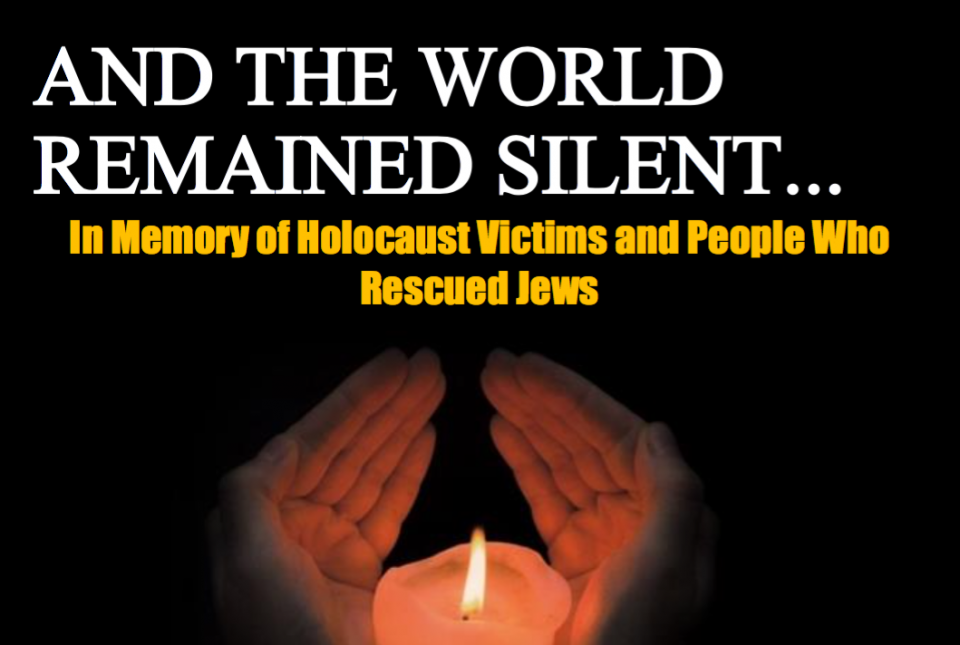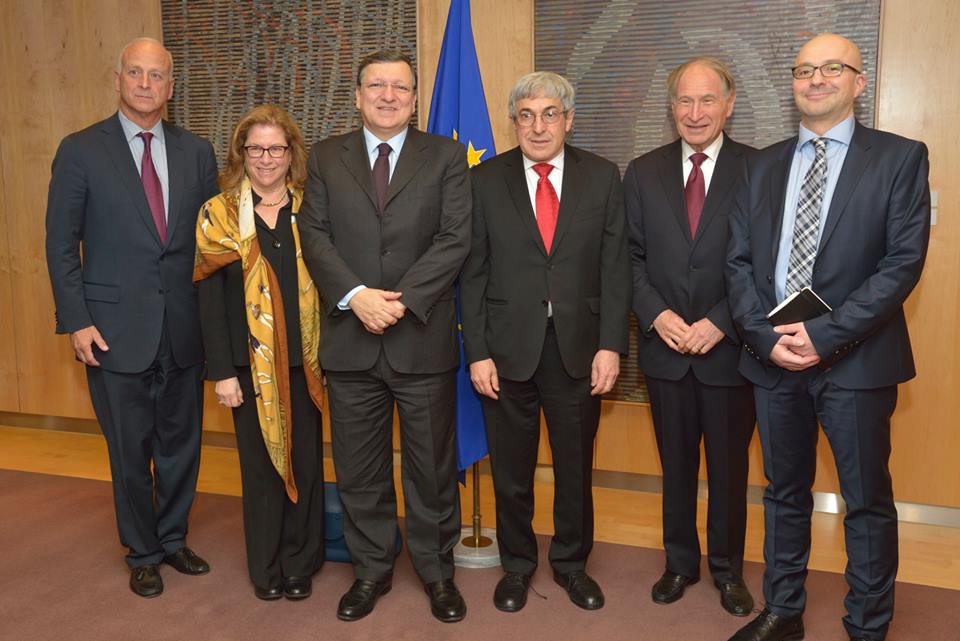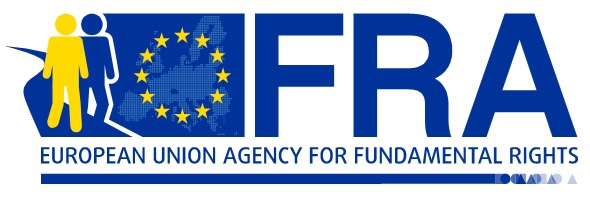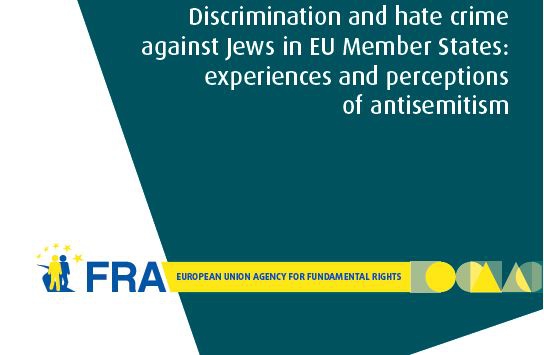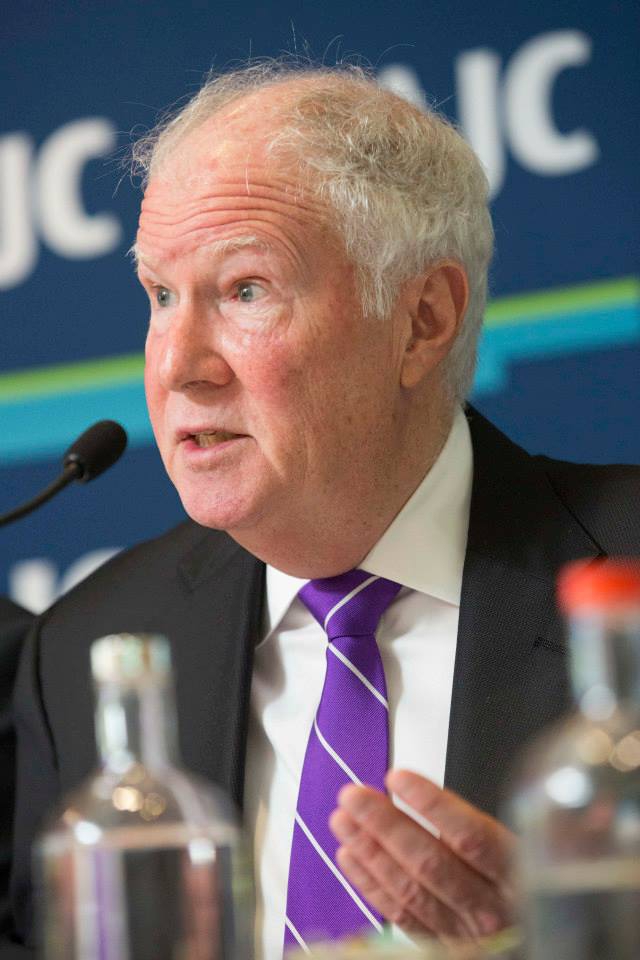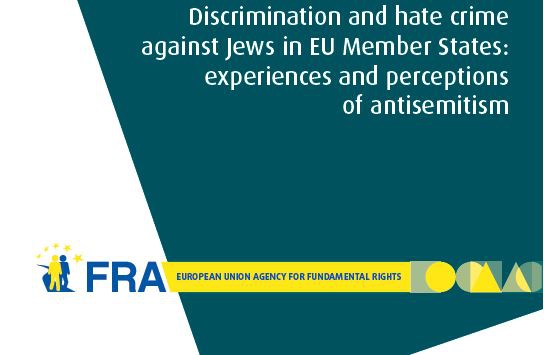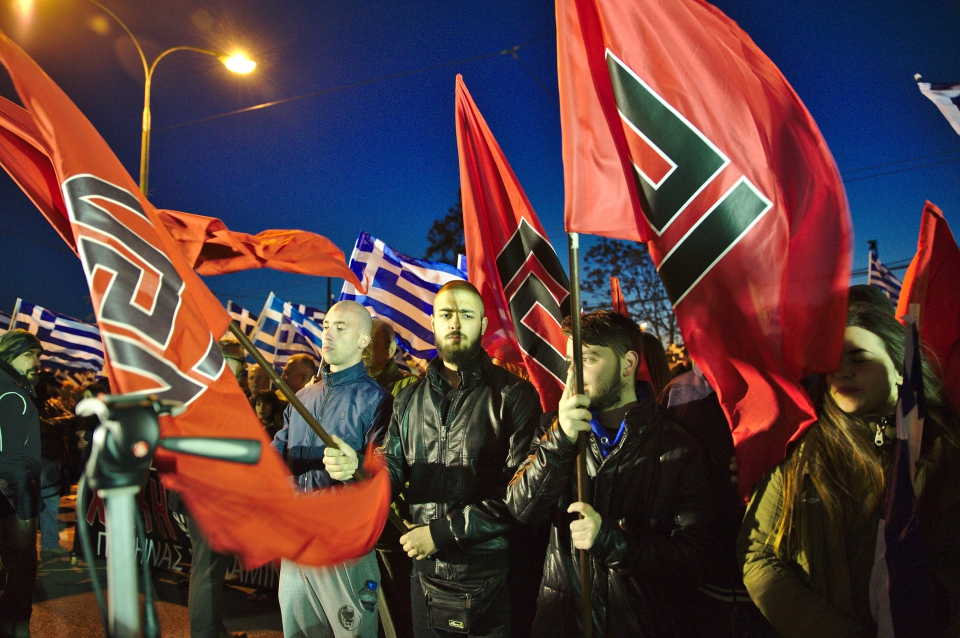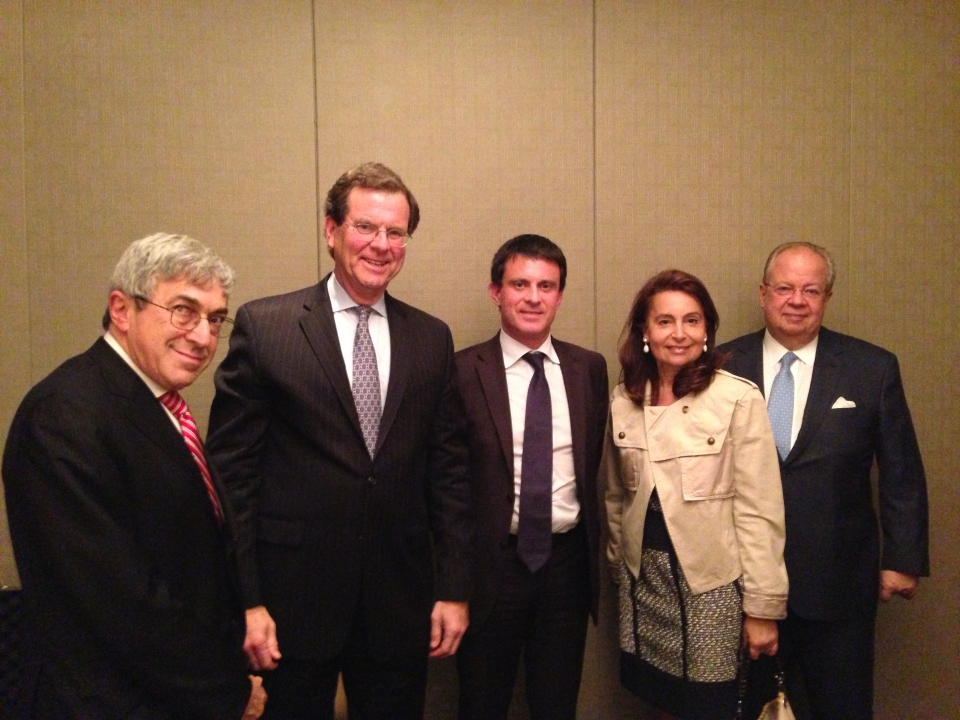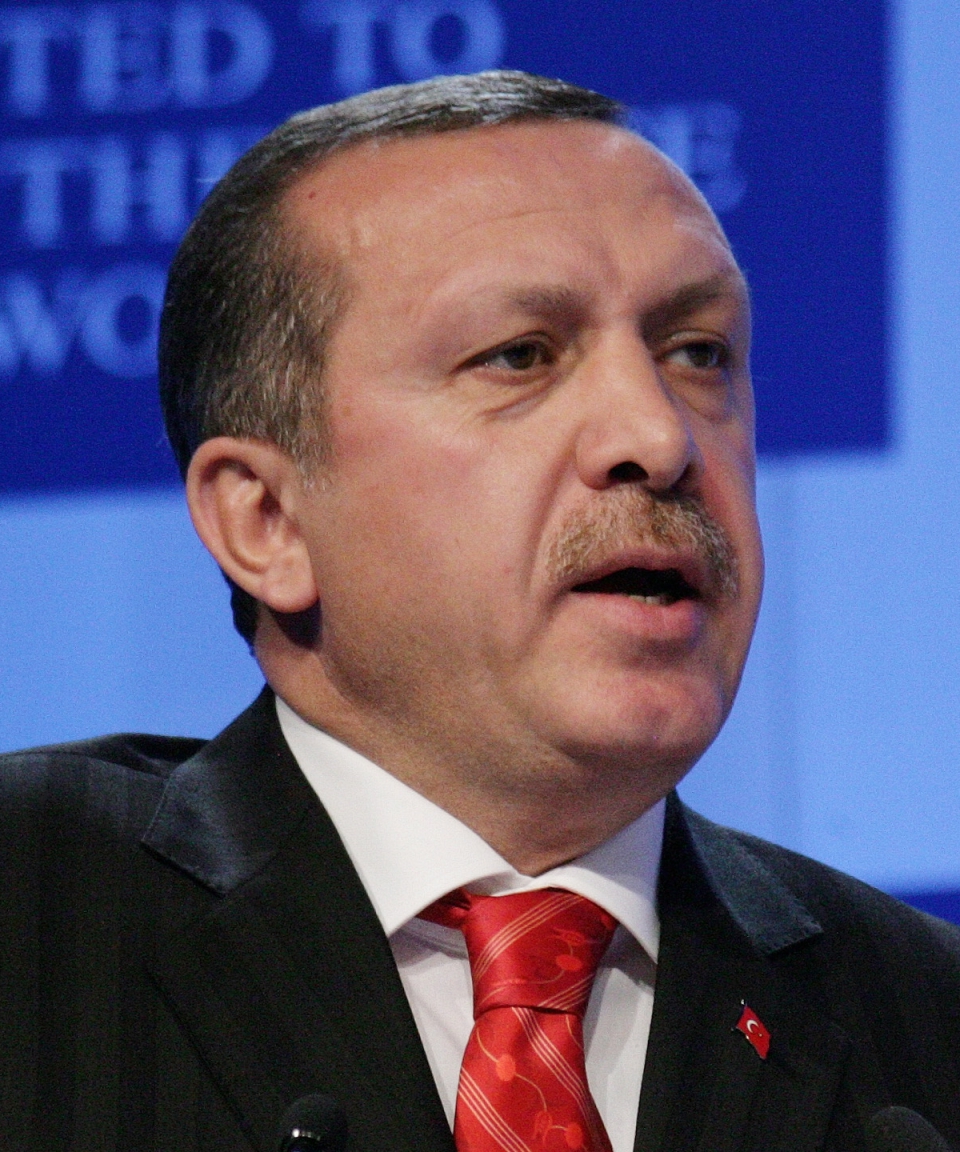Analysis
Remarks: TAI Director Daniel Schwammenthal addresses Members of the European Parliament on Holocaust Remembrance Day
On the eve of the 2016 International Holocaust Remembrance Day, TAI Director Daniel Schwammenthal spoke at MEP Anna Fotyga's conference "And the World Remained Silent...In Memory of Holocaust Victims and People Who Rescued Jews":
Daniel Schwammenthal: "Honorable Members of the European Parliament, ladies and gentlemen. Allow me please first to extend my profound gratitude to Mrs. Fotyga and the ECR Group for organizing this important event of remembrance.
This is a very Polish panel and for good reason.
Half of the Jews Nazi Germany and its allies murdered in the Holocaust were from Poland, home to Europe’s largest Jewish community at the time. I had the great honor to represent the American Jewish Committee at the official opening of the remarkable Warsaw Museum of the History of the Polish Jews, celebrated in the presence of the Polish and Israeli presidents.
Fittingly, the museum was built right opposite of the monument for the heroes of the Warsaw Ghetto Uprising. While that monument is paying tribute to the Jews by remembering how they died, the museum, in the words of its curator, now honors them by “remembering how they lived.” To complete the cycle of remembrance, we need to tell both stories.
And when we remember the righteous among the nations who risked their lives to save others, we ought to know that the nation that supplied the largest number of these remarkable heroes was Poland. In fact, Poland had an entire resistance division dedicated to saving Jews. This is even more remarkable given that as a member of another inferior race targeted for mass destruction and slavery, the Poles faced more draconian punishment for helping Jews than any other nation in occupied Europe.
In my previous life as a journalist, my most emotional and gratifying assignment was to write the obituary for one of the greatest such heroes, Irena Sendlerowa. Allow me to dwell for a moment on the life of this remarkable Catholic Polish woman. As a member of "Zegota," the organization set up by the Polish underground to help Jews, she masterminded a daring rescue operation: Posing as a nurse, she and about 20 other Poles smuggled thousands of Jewish children out of the Warsaw ghetto.
Spirited out in ambulances, sacks and even coffins, through tunnels and sewers, the kids were given Christian names and placed with Polish families, convents and orphanages. Sendlerowa meticulously recorded the children's real names and their new identities so that they could be eventually reunited with their parents. Most of them, though, had no family to return to after the war.
In 1943, the Germans arrested Sendlerowa. They broke her legs and feet to get her to divulge the names of her helpers and the children's whereabouts. She told them nothing. Sentenced to death, Sendlerowa narrowly escaped her torturers and continued her underground work until Germany's defeat.
When Yad Vashem wanted to honor her in 1965, the Communist regime didn't let her travel to the Zionist state to accept the award. In 2003 she received the Order of the White Eagle, Poland's highest civilian decoration. The late Polish President Lech Kaczynski lobbied hard but sadly in vain for her to win the 2007 Nobel Peace Prize.
A year before her death in 2008, the Polish parliament recognized her as a national hero. Too I'll to attend the ceremony, Sendlerowa told the lawmakers in a letter:
"Every child saved with my help and the help of all the wonderful secret messengers, who today are no longer living, is the justification of my existence on this earth, and not a title to glory." It has hard to find words for such stoic humility.
As we remember the past, it is our duty not to distort it. All too often, people speak carelessly about “Polish camps.” Fact is that Auschwitz and the other death camps were conceived, built and operated by Nazi Germany and its allies. The camps were located in German-occupied Poland but they were most emphatically not "Polish camps". This is not a mere semantic matter. Historical integrity and accuracy hang in the balance.
Ladies and gentlemen, I am humbled to speak among such eminent historians. My work though focuses on the present and remembrance though that is detached from the present loses its significance. Can we truly honor the victims and heroes of the past if we ignore today’s threats? What does “never again” mean if once again we appease those who preach genocide?
So allow me please to use some of my speaking time to discuss current events. Right as we are gathered here to pay homage to the victims of the Holocaust, a man will be feted in Rome and Paris who authorizes international “Holocaust Cartoon” competitions and who when asked whether the Holocaust really happened answered with poisonous sophistry: “I’m not a historian.”
It is under this “moderate” President Rouhani that Iran’s henchman help Assad starve his own citizens while executions in Iran itself have skyrocketed. It is quite a spectacle to hear Europeans make solemn declarations about the evils of anti-Semitism, and then to see those same Europeans pilgrimage for business opportunities to Tehran, the capital of global anti-Semitism, the capital of a regime that openly calls for the destruction of the world’s only Jewish state.
As a German-born Jew and son of Holocaust survivors, it pains me to say that Europe’s leaders have not only long ignored the anti-Semitism in Iran and the wider Middle East. They have also long ignored the rising anti-Semitic attacks here in our own Continent. The murders in 2012 of three Jewish children and a rabbi in Toulouse, and of four people in the Brussels Jewish museum in 2014 failed to evoke any large scale demonstrations, let alone serious political action. The Charlie Hebdo attack galvanized public outrage in a way the Toulouse and Brussels murders and even the simultaneous Paris kosher supermarket attack clearly had not.
However belatedly, governments, particularly the French, have begun to speak more openly about the anti-Semitic threat from Islamists. We would be fooling ourselves, however, if we reduced the problem “just” to Europe’s thousands of home-grown jihadis.
Those willing to murder in the name of a radical ideology, be it fascism, communism or jihadism, will always be a minority. But without the much larger circles of sympathizers, people who share at least some of the terrorists’ extreme beliefs or “understand” their alleged grievances, the jihadi recruiters wouldn’t be so successful.
But the problem goes much deeper. As the demonization of Israel moves from the fringes to the center of European society, violence not just against Israeli civilians but also European Jews becomes explainable, if not inevitable, in the minds of too many Europeans.
According to a Friedrich Ebert study in eight EU member states, between 38% and 63% of surveyed Europeans agreed with the statement that "Israel is conducting a war of extermination against the Palestinians" This is what some anti-Semitism researchers have dubbed Holocaust Inversion, perhaps even more sinister than outright Holocaust denial. Between 35%-56% of those Europeans polled agreed with the statement that "considering Israeli policy I can understand why people don't like Jews."
Tapping into these trends in society, far-right parties such as Jobbik and Golden Dawn have begun incorporating the “progressive” anti-Zionist vocabulary of the far left into their own more traditional anti-Semitic talking points. This is the "horseshoe" theory of modern politics: As the iron of our political discourse about Israel and Jews is bent backward, the two extremes, far left and far right, almost touch.
How can it be that such an astonishing number of Europeans believe in such a perversion of the truth? The Medieval blood libels used to incite pogroms and the Holocaust have been updated to demonize the Jewish state and ultimately all Jews, as they are being held collectively responsible for Israel’s shortcomings, both real and imagined. And so the screams of “Hamas, Hamas, Jews to the Gas” and “Hitler Was Right,” can be heard regularly on the streets of Europe at so-called pro-Palestinian demonstrations without eliciting much attention let alone outrage.
Realizing the depth of the problem already back in 2005, the predecessor organization of the EU’s Fundamental Rights Agency, drafted a working definition of anti-Semitism that specifically included the demonization of Israel, comparing it to Nazi Germany, or holding Jews responsible for Israel's actions. The EU though has yet to adopt it.
To properly honor the memory of the victims of the Holocaust and those who risked and all too often gave their lives to save them, we must never again remain silent. European leaders have to stand up to the vilification of the world’s only Jewish state, we have to stand up to anti-Semitism at home and abroad, irrespective of whether the bigots come from the far-right, far-left or immigrant communities.
Asked how she found the courage for her rescue operations, Irena Sendlerowa said “Fear makes you weak; anger makes you strong.” Ladies and gentlemen, on the eve of this International Holocaust Remembrance Day, it’s time to get angry again.
Thank you for attention.
